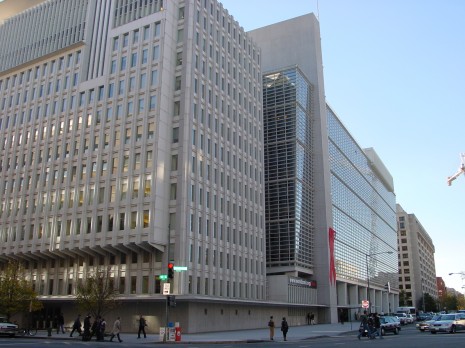The World Bank Board of Executive Directors Tuesday approved two grants totaling $210 million from the International Development Association (IDA), as part of a larger financial package of $380 million, to help Afghanistan.
Publish dateWednesday 5 August 2020 - 15:11
Story Code : 216168
The aim of the package is to help Afghanistan "cushion the economic impact of the COVID-19 pandemic on Afghan households, support critical food supply chains, and provide emergency support to farmers," the World Bank said in a statement.
The $280 million grant will fund the COVID-19 Relief Effort for Afghan Communities and Households (REACH) Project, the statement said, adding that the total grant amount is comprised of $155 million from IDA—the World Bank Group’s fund for the poorest countries—and will be complemented by $125 million from the Afghanistan Reconstruction Trust Fund (ARTF), managed by the World Bank on behalf of 34 donors.
The project is intended to help some "2.9 million households" across Afghanistan. The REACH project will complement a parallel relief effort organized under the Citizens’ Charter Afghanistan Project.
Together, both will cover 90 percent of households in the country under the government’s “Dastarkhan-e-Milli” program, benefitting an estimated 4.1 million households with incomes of $2 a day or less, according to the statement.
A $100 million grant will fund the Emergency Agriculture and Food Supply Project (EATS). The grant is comprised of $55 million from IDA and will be complemented by $45 million from the ARTF. The project aims to improve food security by increasing local food production and strengthening critical commercial food supply chains, especially wheat, which is the staple crop for over 70 percent of the Afghan population.
The project is intended to provide short-term employment in rural areas in the development of productive assets such as irrigation schemes. The statement notes: "In rural areas, measures to prevent the spread of COVID-19 have disrupted farming, leaving Afghan farmers unable to sow their crops on time, while in urban areas food prices are rising with shortages of food supply becoming more urgent."
“The living conditions of millions of Afghan families have severely worsened due to the impacts of the COVID-19 outbreak,” said Henry Kerali, World Bank Country Director for Afghanistan. “These grants will help the Government of Afghanistan address the urgent needs of most households and ensure that Afghan farmers can continue to produce food at a time when imports and exports are severely disrupted. This will extend economic opportunities and create jobs for the wider rural population.”
The COVID-19 Relief Effort for Afghan Communities and Households Project will be implemented through the Ministry of Rural Rehabilitation and Development (MRRD), the Independent Directorate for Local Governance (IDLG), and the Kabul Municipality.
It will help provide relief to Afghan households through grants to Community Development Councils (CDCs) to purchase food and sanitation packages for households in their respective communities, the statement said.
"By directly procuring these goods from local wholesalers and retailers, the communities will also help support small businesses in their localities," says the World Bank statement, adding: "The new assistance will help the government enhance community service delivery through CDCs under the Citizens’ Charter program and reduce the immediate impacts of the pandemic on households across the country."
The Emergency Agriculture and Food Supply Project, implemented by the Ministry of Agriculture, Irrigation and Livestock (MAIL), will support emergency wheat seed distribution to farmers and provide technical assistance to small and medium enterprises to address supply chain disruptions, the statement said.
The project is intended to create short-term employment opportunities in rural areas, which will contribute to COVID-19 emergency relief efforts.
The World Bank also mentioned the Citizens’ Charter Afghanistan Program, which "aims to improve the delivery of core infrastructure and social services to participating communities through strengthened CDCs."
The Citizens’ Charter is set up as an inter-ministerial program to deliver grants to CDCs that support basic services. The MRRD implements the Citizens’ Charter program in rural areas, while the IDLG is responsible for the four major cities of Herat, Jalalabad, Kandahar, and Mazar-e-Sharif, the statement said.
Source : Afghan Voice Agency(AVA)
avapress.net/vdcd990xjyt0ff6.em2y.html
Tags
Top hits








